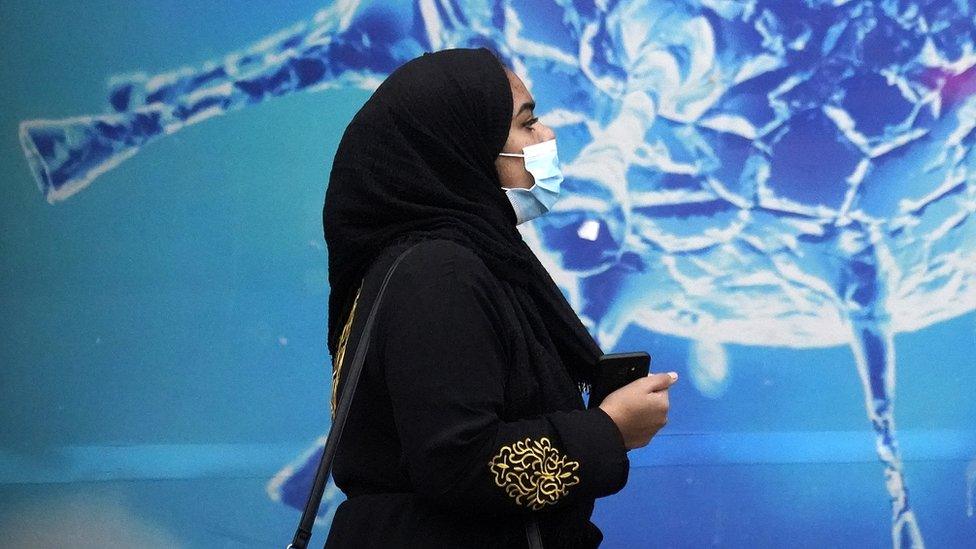NHS Test and Trace explained in South Asian languages
- Published
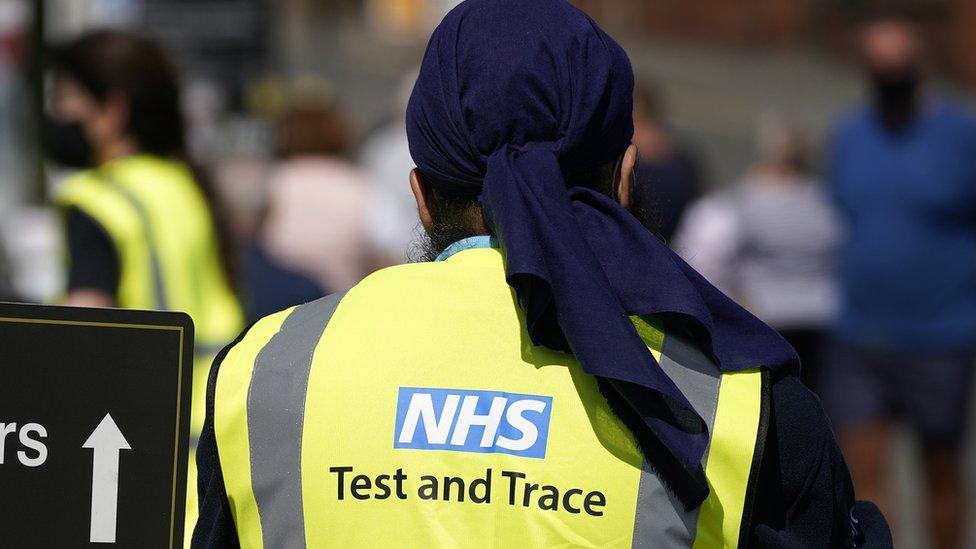
Anyone with coronavirus symptoms must get tested and self-isolate
With hospitals under extreme pressure and daily infections still high, the NHS Test and Trace system remains an important tool to stop the spread of coronavirus.
The system works to identify people with the virus and the people they have been in close contact with. Those identified are then told to self-isolate for 10 days to help stop the virus spreading.
Anyone who has coronavirus symptoms must self-isolate and get tested. If they test positive they will be contacted by a NHS contact tracer to share details of those whom they have been near.
BBC Asian Network is helping the South Asian community in the UK to understand how the test-and-trace system works in five languages, Gujarati, Punjabi, Sylheti, Tamil and Urdu.
Punjabi
Reporter Raj Kaur Bilkhu explains how the test-and-trace system works in Punjabi.
Reporter Raj Kaur Bilkhu explains how the NHS Test and Trace system works
Gujarati
Editor Kamlesh Purohit explains how the test-and-trace system works in Gujarati.
Kamlesh Purohit explains how the NHS Test and Trace system works
Sylheti
Presenter Poppy Begum explains how the test-and-trace system works in Sylheti.
Presenter Poppy Begum explains how the NHS Test and Trace system works
Tamil
Presenter Sangeetha Rajan explains how the test-and-trace system works in Tamil.
Presenter Sangeetha Rajan explains how the NHS Test and Trace system works
Urdu
Reporter Haroon Rashid explains how the test-and-trace system works in Urdu.
Reporter Haroon Rashid explains how the NHS Test and Trace system works
Related topics
- Published2 June 2020
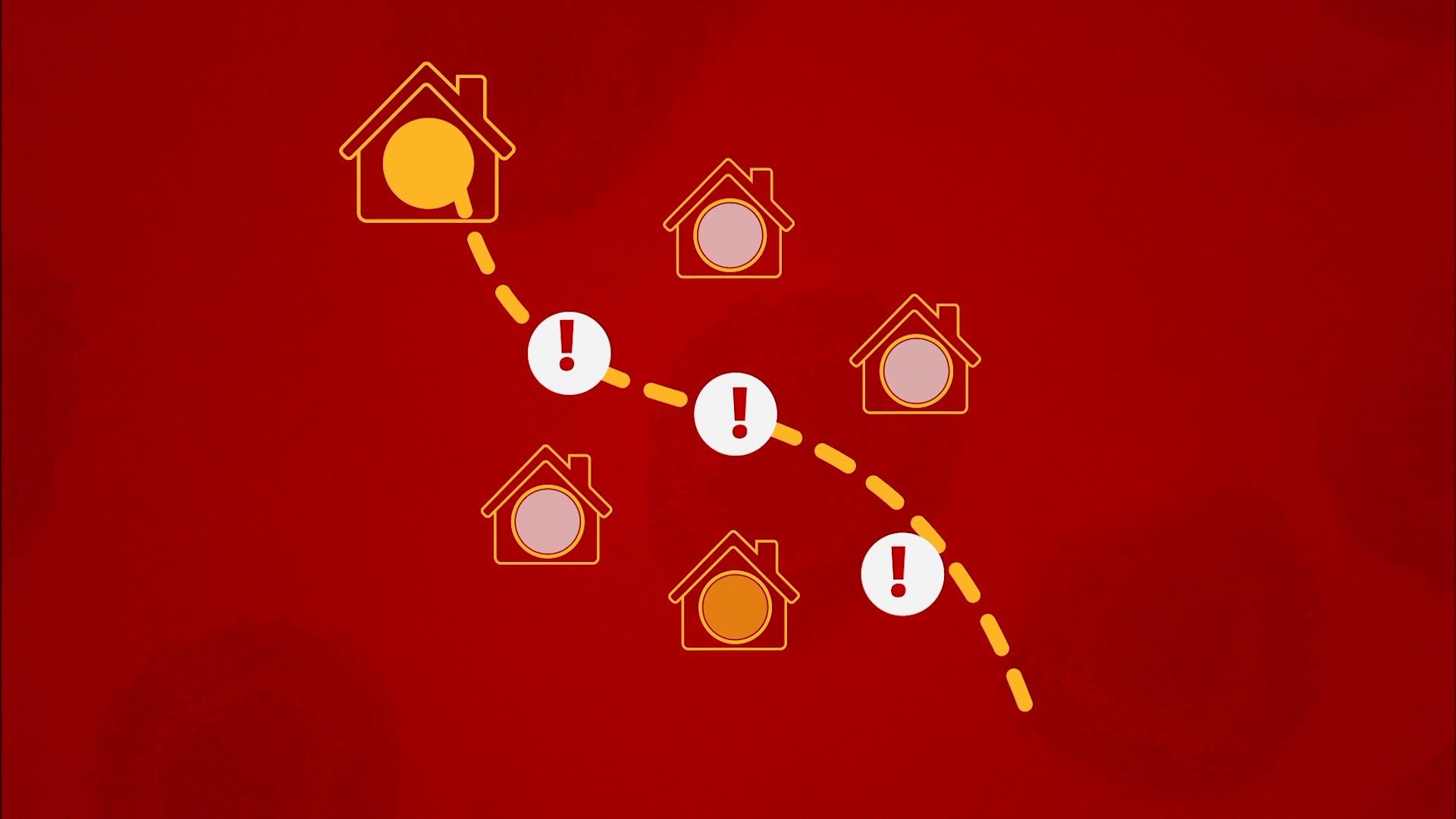
- Published17 December 2020
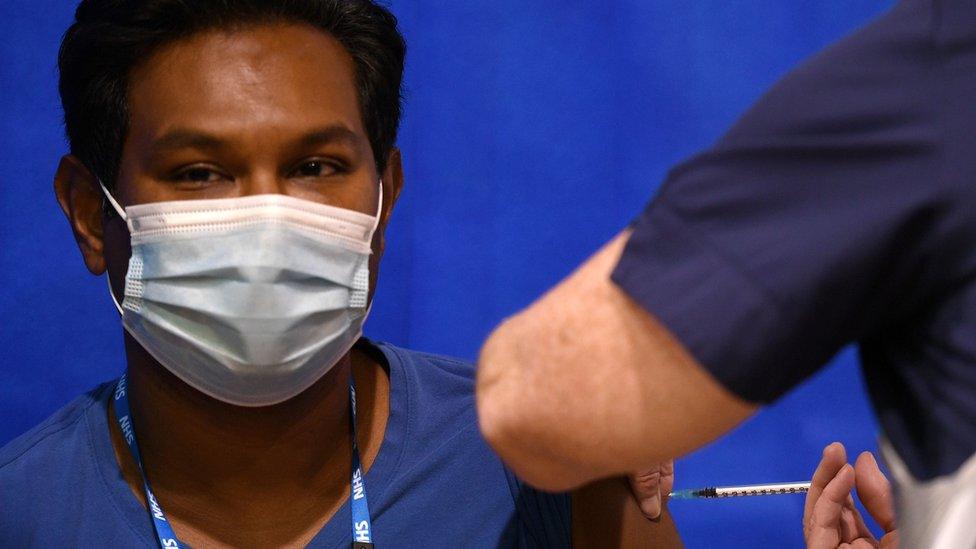
- Published3 December 2020
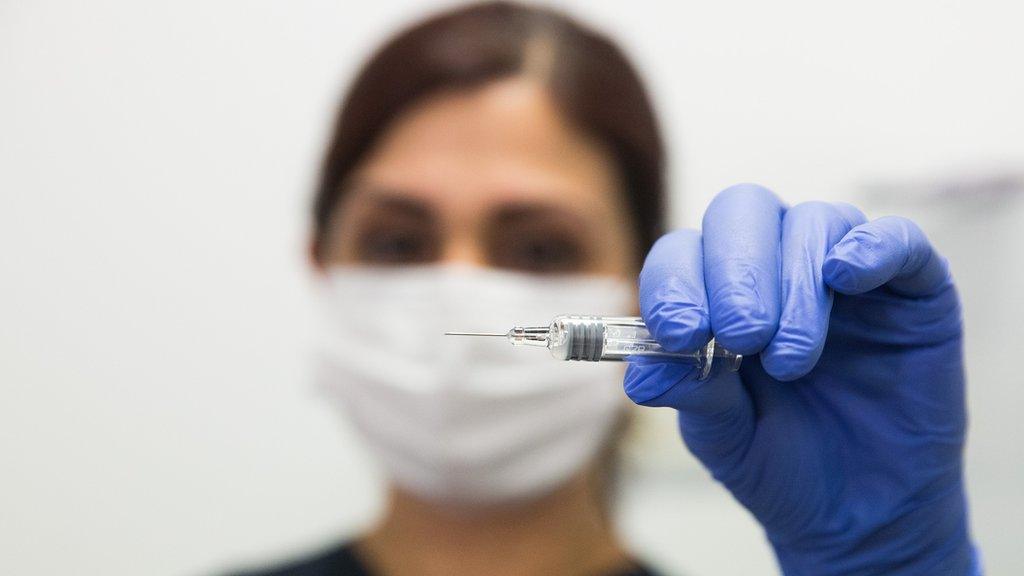
- Published8 January 2021
